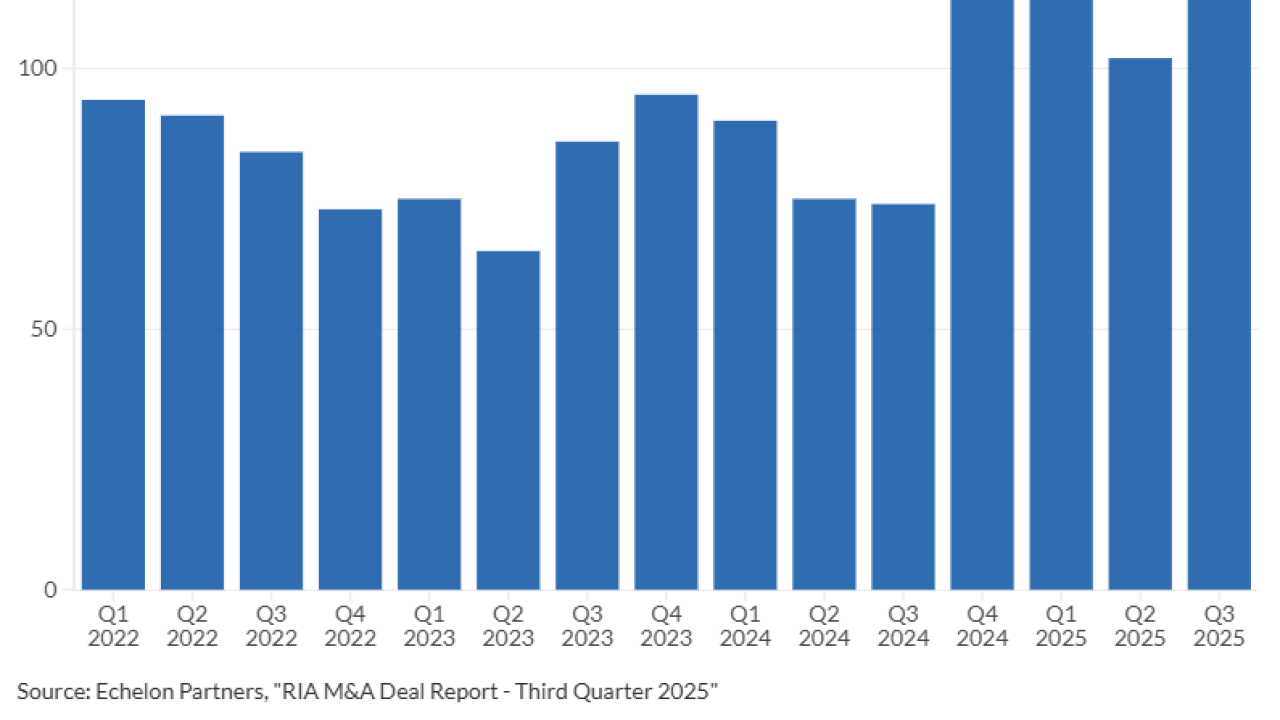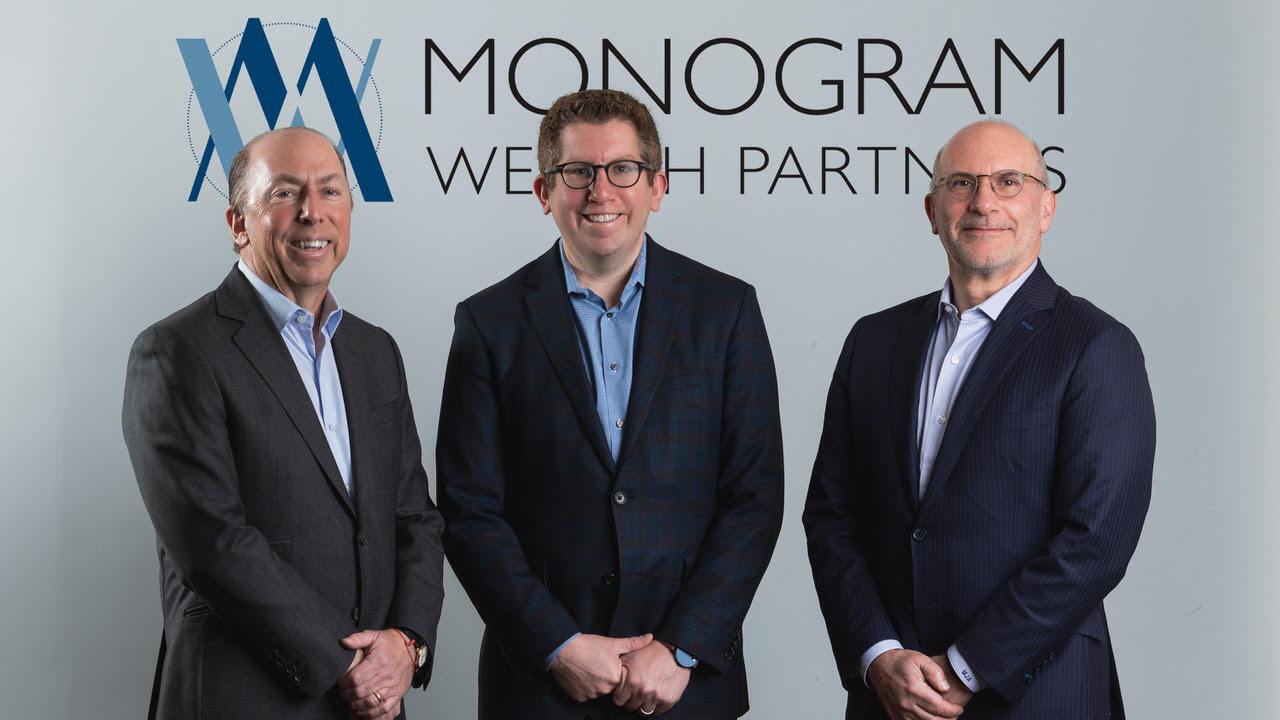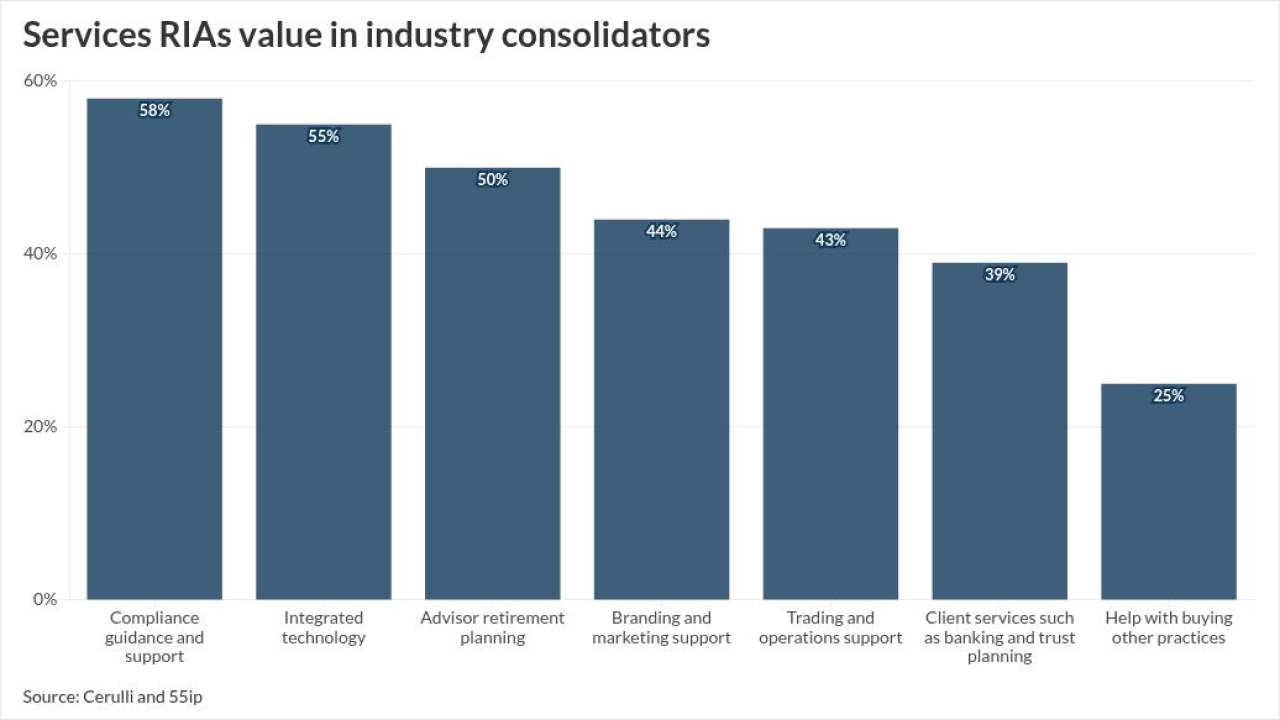Are investors taking too big a tax hit on their portfolio returns?
While new tax rules and higher stock market returns have increased clients' tax liabilities, only 18% of advisors say clients proactively want to discuss tax implications of investment strategies, according to a new advisor survey from Russell Investments -- and only 29% of advisors say they've initiated a conversation about the matter in the last quarter.
"We're seeing this as a really big opportunity for advisors," says Frank Pape, director of consulting for Russell's U.S. advisor-sold business and author of Russell's latest Financial Professional Outlook study. "Coming out of 2013 we saw that funds had really large distributions, and tax rates went up. We wanted advisors to get in front of that."
"I think many advisors don't appreciate how big a deal this is," he adds.
ADVISOR WEAKNESS
One challenge may be advisors' own shortcomings. Although the vast majority (86% of respondents) say they recognize the importance of tax-managed investing strategies, only 11% report that such strategies are critical to their own firm's value proposition, Pape says.
Advisors are also dismayingly fuzzy around the concept of after-tax portfolio returns, Pape notes. Almost 40% failed to answer an open-ended question about ways to calculate after-tax returns, according to the survey, and the remainder either said they don't do it or offered a smattering of different answers -- including some incorrect ones.
"It seems many advisors are not connecting the dots between actual return and how much the client has after taxes," Pape says.
CPA RELATIONSHIPS
Russell is urging advisors to bolster their own understanding of tax-advantaged investing -- both by educating themselves (the company actually offers advisors a
Pape also encourages advisors to fold a discussion of tax implications into conversations about rebalancing. "I know advisors hate to bring up the idea of paying tax," he says. But he cites the example of a 50/50 portfolio that has become 70% stocks over the last couple of years of stock market gains -- "That's a different portfolio" and needs to be rebalanced, he says. "Avoiding the tax should never be the investment strategy."
If advisors are unconvinced, Pape argues that there's another advantage to beefing up tax skills.
"Who cares about taxes? High-net-worth individuals -- the kinds of clients that advisors want," he points out. "We think advisors don't need to become a CPA, but getting a little bit of education -- so advisors understand the language, get their comfort level up -- is a good client acquisition strategy for high-net-worth individuals."
Read more:





